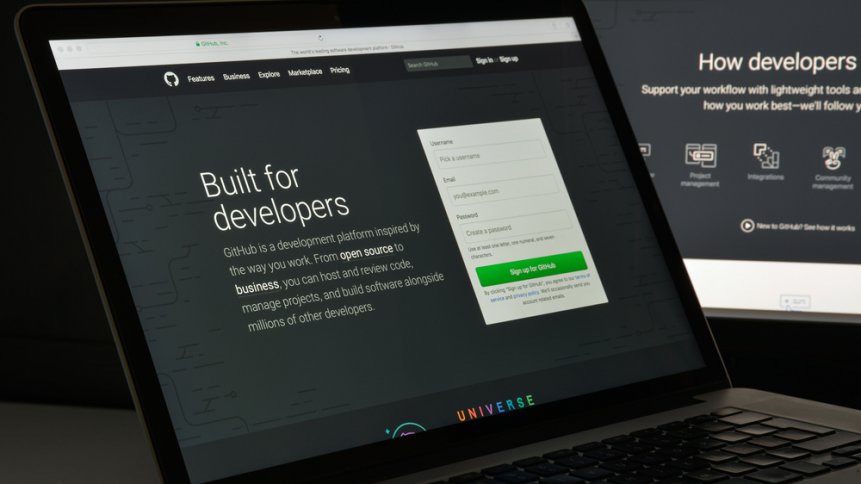Business open source levels up with GitHub Enterprise Server update

Organizations do not usually reveal too much of their internal tooling and infrastructure transformation strategies, but since the release of the GitHub Enterprise Server, the creation of open source projects for business environments has skyrocketed.
That might not sound surprising, since even back in pre-pandemic 2019, GitHub Enterprise was seeing triple-digit growth as larger-scale organizations – tempted by effective case studies of DevOps tools harnessed to build and scale web applications for other companies quickly – embraced the enterprise version of GitHub. But the Enterprise Server really took off in 2020 and 2021.
Useful Updates
The paradigm shift to hybrid working and changing productivity needs saw upwards of 84% of Fortune 100 companies making use of GitHub Enterprise last year. One of the major advantages for productivity-focused developers is that repetitive tasks and business friction can be lessened with automation, and teams perform better when automation tools are developed using an open source code repository.
That criterion suggests reasons why automation features were one of the standout additions in the latest round of GitHub Enterprise Server updates, labelled version 3.6 and also including security enhancements primed for enterprises, including the notable addition of GitHub Discussions for business-facing purposes.
Known as the primary code and information hub for open source developers (a source of some contention among the coding community), GitHub is spearheading attempts to enhance collaborative processes so that the open source community can communicate and work together to push development boundaries further – both to put their heads together to work through coding obstacles, and to champion a teamwork mindset that makes best use of the benefits of open source – namely that open code can be worked on (and improved upon) by anyone with access to it.
Ongoing Discussions
This shared community experience is what drove the release of GitHub Discussions last year, as a forum for developer communities to ask questions, share ideas, and build connections. With GitHub Enterprise Server version 3.6, GitHub Discussions is being made available there for the first time, which had been highly anticipated by some in the world of enterprise open source developers.
Teams can gather at Discussions to break down development roadmaps, develop ideas and features suggestions, as well as keep track of outcomes and feature requests automatically. All of this happens without having to leave the platform, which you had to do before. GitHub Discussions helps narrow the focus of teams and keep their conversations centered.
“GitHub Discussions cuts down on context switching and helps bring your ideas next to your code,” noted the GitHub blog listing the feature updates. “It provides a dedicated place to discuss ideas and answer questions, while keeping your GitHub Issues focused on capturing work and plans.”
Protecting Vulnerable Dependencies
There are updates for GitHub Advanced Security customers, such as the security overview page now including Dependabot and code scanning alerts at the enterprise layer, providing top-down visibility over all levels of security alerts across codebases. There is also a new dependency review API where users can configure dependency review enforcement to prevent vulnerable dependencies from accessing their codebases. Just like the dependency review features, dry runs of secret scanning custom patterns are also in the beta stage.
There are a number of other incremental changes that help shore up instance security, among them the ability to remove insecure SSH keys and Git protocols, along with enforcing TLS data library encryption for incoming SMTP connections.
Another useful update in version 3.6 is the ability to collect data from across server instances, with data sources from 41 different metrics available when using a GitHub Enterprise Cloud account from a REST API, CSV or JSON connection. With the aggregated data, system admins can better understand how developer teams work, and the collective power of data can be harnessed to improve GitHub as a platform, and to build better value from the GitHub Enterprise Server.
Open Source Everywhere
As established as the open source development community is in 2022, with even big end-user outfits like Facebook, LinkedIn, Uber and Spotify all leveraging open source tools, open source is not out in the wilderness as it once was for larger enterprises – especially as they move away from being vendor-neutral and embrace the principle of using the most innovative, resource-lite offering at the right time, which can often be the open source solution.
An open, developer-friendly platform like GitHub Enterprise Server unshackles users from vendor lock-in, and with 90 out of the Fortune 100 leveraging GitHub Enterprise Server in one way or another, the growth might continue to be exponential for some time to come.








